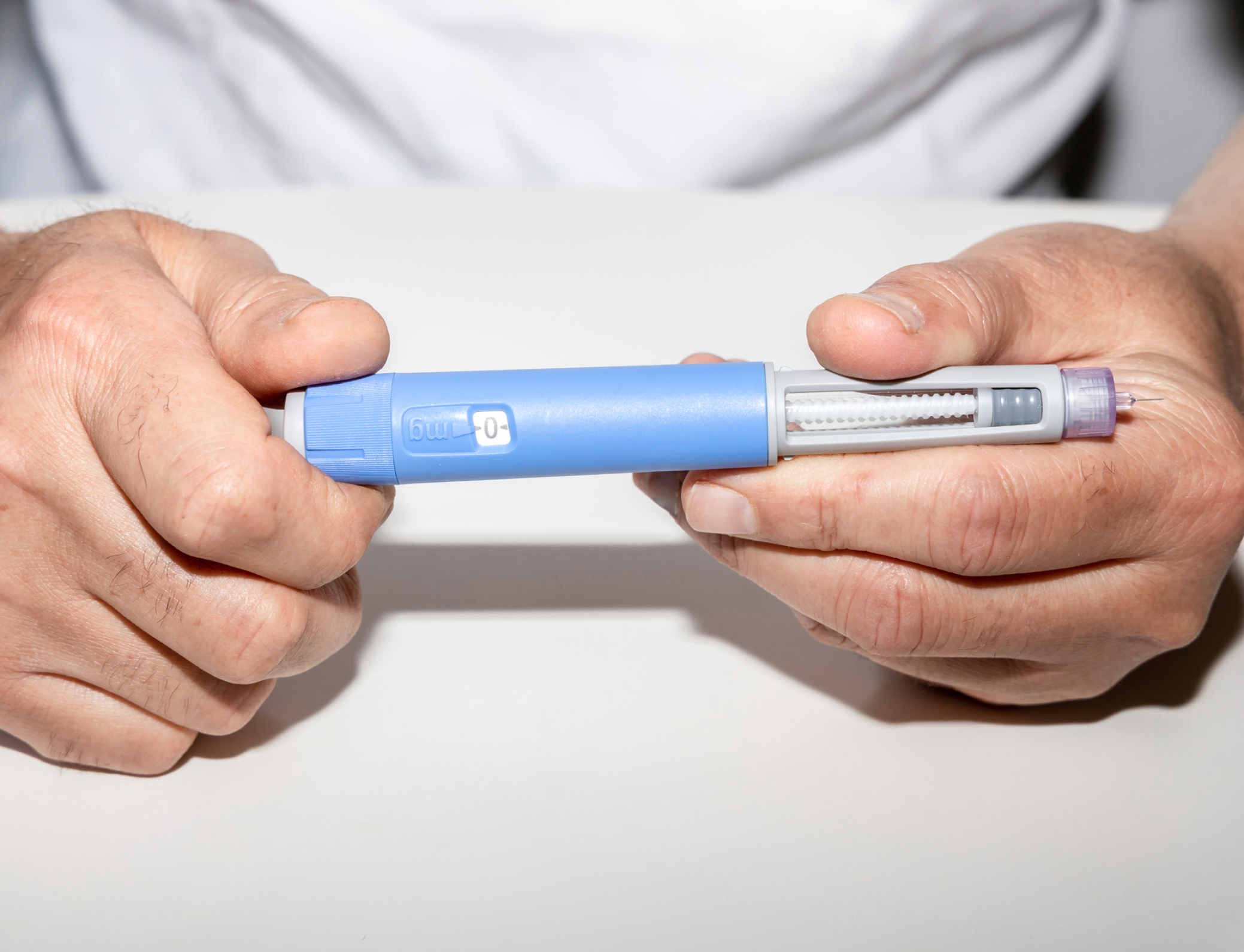Study Links Wegovy, Ozempic to Vision Loss Disorder
Editors carefully fact-check all Drugwatch.com content for accuracy and quality.
Drugwatch.com has a stringent fact-checking process. It starts with our strict sourcing guidelines.
We only gather information from credible sources. This includes peer-reviewed medical journals, reputable media outlets, government reports, court records and interviews with qualified experts.

Semaglutide drugs Ozempic, Wegovy and Rybelsus could be linked to an increased risk of a vision loss disorder, new study data suggests.
According to the study published in JAMA Ophthalmology, patients with Type 2 diabetes who took semaglutide — a glucagon-like peptide-1 (GLP-1) class drug — had about a fourfold higher risk for developing nonarteritic anterior ischemic optic neuropathy (NAION) compared with patients not on a GLP-1 agonist, researchers reported.
Overweight people who took semaglutide for weight loss had an over sevenfold higher risk.
To gather data, scientists looked at the medical records of 16,827 patients and analyzed a sample size of 629 cases of NAION over six years.
NAION is the second most common form of optic neuropathy, a significant cause of blindness in adults, researchers said. NAION occurs when blood flow stops to the optic nerve. The incidence rate is about two to 10 people per 100,000 people.
“It is, in effect, a stroke of the optic nerve,” senior study author Dr. Joseph Rizzo, the director of neuro-ophthalmology at Mass Eye and Ear in Boston, told NBC News.
Researchers cautioned that while the study findings are statistically significant, they don’t establish that semaglutide causes NAION.
“This study’s findings suggest an association between semaglutide and NAION. As this was an observational study, future study is required to assess causality,” the study authors wrote.
Vision Loss Side Effect May Lead to Lawsuits
Shortly after the study was published, lawyers began investigating potential semaglutide vision loss and blindness lawsuits.
“This recent study uncovered a potentially significant relationship between the use of semaglutide and a very specific kind of vision loss caused from loss of blood flow to the optic nerve. It is incumbent upon the manufacturers of these widely used products to investigate this association further and warn the millions of individuals currently being prescribed,” said Trent Miracle, managing partner of the pharmaceutical division at Flint Cooper.
Miracle said anyone who used a semaglutide drug and received a diagnosis of NAION could have a viable claim.
These new vision loss claims wouldn’t be the first group of lawsuits for semaglutide drugs. Currently, there are about 105 personal injury lawsuits for gastrointestinal issues pending in federal court in the Eastern District of Pennsylvania.
FDA Receives 1,776 Reports of Semaglutide Eye Disorders
According to the FDA Adverse Events Reporting System (FAERS), 1,776 eye disorders were reported as of March 31, 2024. Of these reports, 409 were for visual impairment and 71 were for blindness. However, because these were voluntary reports, FDA cannot confirm these were caused by semaglutide.
Semaglutide has previously been linked to exacerbation of retinopathy, progression of proliferative retinopathy, and new-onset macular edema. However, this is the first time semaglutide has been linked to NAION.
Researchers theorized that semaglutide “enhanced sympathetic nervous system activity might influence optic nerve head perfusion and potentially increase the risk of NAION.”
So far, Ozempic is the most prescribed semaglutide-containing medication, followed by Wegovy, the JAMA study said. Based on their data, researchers theorized that cases of NAOIN linked to semgalutide will go up as semaglutide prescriptions increase.
In a statement to NBC, a Novo Nordisk spokesperson said this study doesn’t have enough evidence to establish a link between semaglutide and NAION.
“Patient safety is a top priority for Novo Nordisk, and we take all reports about adverse events from the use of our medicines very seriously,” the spokesperson told NBC.


